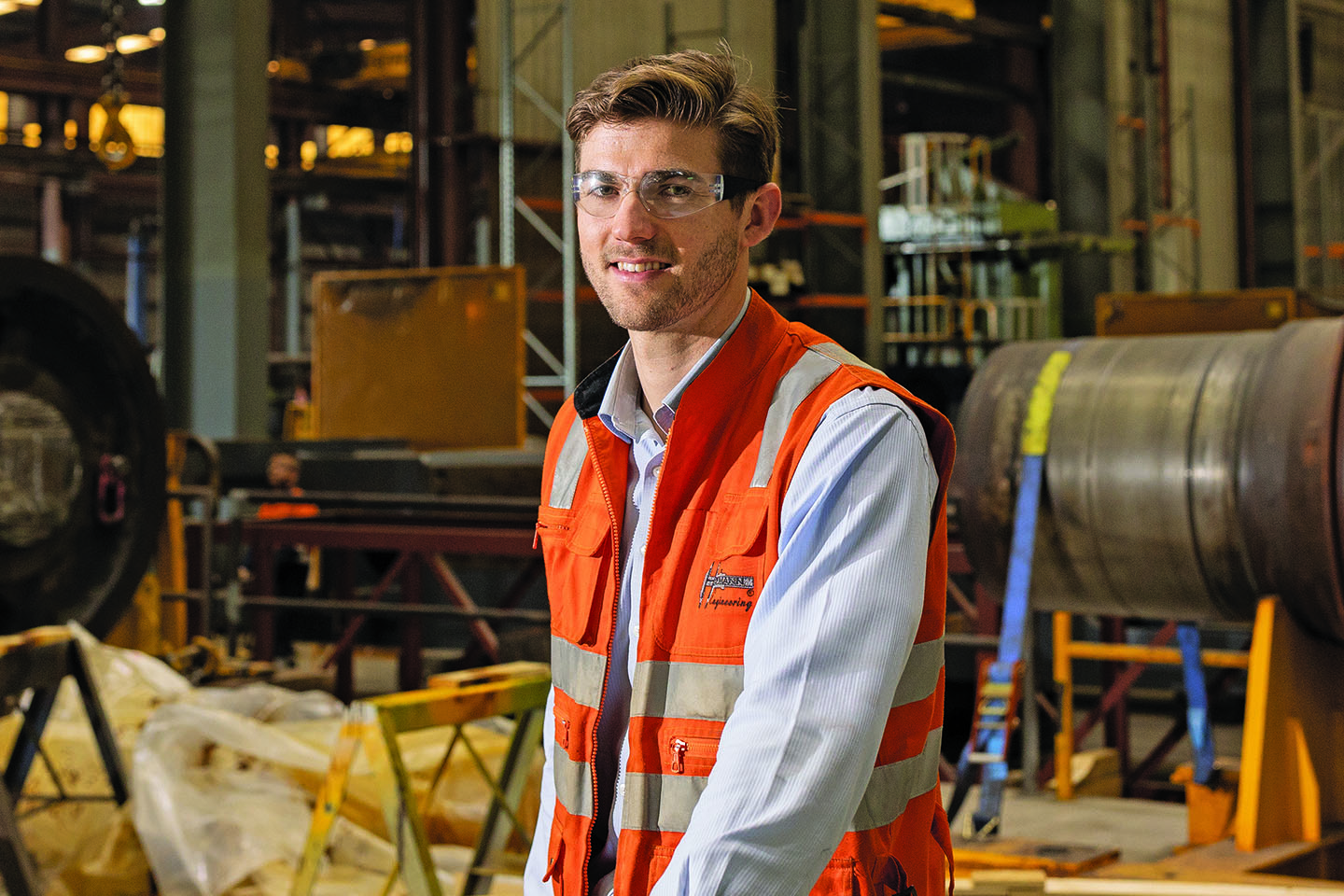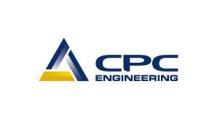Bassendean business Hofmann Engineering illustrates both the opportunities and challenges facing WA as the government seeks to expand manufacturing.


Hofmann Engineering’s Bassendean workshop is the kind of place politicians like to use as a backdrop for policy announcements.
The family company has hosted prime ministers and premiers over the years, all of them keen to share in Hofmann’s success as a high-tech, export-focused manufacturer.
Transport Minister Rita Saffioti was among the recent visitors after Hofmann won a contract to manufacture the bogie frames for Perth’s new railcars.
That was a small but notable step in the state government’s plan to rebuild manufacturing in Western Australia.
(click here to view a PDF version of the full 12-page liftout)
The contract was awarded by French multinational Alstom, which has been contracted to supply and maintain 246 new railcars.
As part of the contract, Alstom needs to meet a 50 per cent local content target.
Hofmann plans to invest about $11 million installing a robotic welding machine at its Bassendean factory to manufacture the bogie frames, which support the railcar body and house the wheels and braking equipment.
It already has a similar machine at its Bendigo factory, at which it manufactures bogie frames for Victoria’s new trains.
Victoria has a 60 per cent local content requirement.
The Alstom contract was a significant strategic win for Hofmann but, on its own, will not be enough to fully utilise the new equipment’s potential.
It will manufacture only two bogie frames per month in Bassendean compared to 50 per month in Bendigo.
Managing director Erich Hofmann said the business needed to ensure it could utilise the equipment on a range of other jobs.
It’s an approach Hofmann has been utilising for the better part of 50 years since it was established by Mr Hofmann’s father and uncle.
“We invest in technology to stay at the forefront,” Mr Hofmann said.
“We need new equipment and the latest technology so we can compete internationally.”
The business has developed precision engineering skills applicable across multiple industries.
It produces specialist equipment, such as gears and bearings for use in industries as diverse as mining, energy, aerospace, and defence.
The edge it adds is extra precision and strength through its machining and heat-treatment equipment.

Hofmann plans to insall a robotic welding machine at Bassendean similar to this machine at its Bendigo factory. Photo: Supplied.
Mr Hofmann said the company spent between $15 million and $20 million each year on research and development to ensure it kept up to speed.
“We are world leaders in large, forged steel gears,” he said.
Wind farm equipment is another sector in which Hofmann has enjoyed success.
It has been manufacturing parts for wind turbines for more than 30 years, including gearboxes, the main shaft, tower, and slew bearings.
“Bottom line, the whole wind turbine can be 100 per cent manufactured in WA,” Mr Hofmann said.
That experience has encouraged the state government to explore further opportunities in that sector.
Last month, Premier Mark McGowan announced the government was undertaking a feasibility study into producing wind turbine components locally.
A taskforce that includes Hofmann, Civmec, Austal, Pacific Industrial Company, and Fremantle Steel, along with BlueScope Steel, has been working on this initiative.
“The fact that full wind towers are being imported into the country has restricted job opportunities in manufacturing and fabricating by WA businesses,” Mr McGowan said.
This is one of several initiatives the state government is pursuing to boost manufacturing.
The premier also announced last month the government planned to invest $40 million building a diesel railcar maintenance facility at Bellevue.
This will be adjacent to the $46 million assembly hall where Alstom will build and maintain the passenger railcars.
In addition, the government is investigating the viability of manufacturing and maintaining iron ore railcar wagons in WA.
That’s being pitched as an opportunity for the big iron ore miners, led by Rio Tinto, BHP, and Fortescue Metals Group, to reinvest some of their profits into sustainable jobs in WA.

Most of the machines at Hofmann are computer controlled. Photo: Gabriel Oliveira
Hofmann is well placed to pursue new opportunities.
It has just completed its most successful year, with sales revenue increasing to $160 million for the 12 months to June 2020.
It remains 100 per cent family owned and totally debt free, with Mr Hofmann saying profits were reinvested into the business.
It has also diversified, with the latest move being the acquisition of a factory in Canada.
That’s in addition to facilities in Bendigo, Melbourne, and Newcastle, as well as Chile and Peru.
The business has just less than 600 staff, two-thirds of whom are in WA.
It is a big investor in training, with about 50 apprentices on its payroll.
Operations engineer Karl Hofmann said the company was in the process of establishing its own apprentice workshop on the factory floor.
This will include computerised lathes and other specialist equipment purely for training.
“We would like to do more dedicated training,” Karl Hofmann said.
“They do some programming at TAFE, but not at the level we require.”
The company selects year 12 students for work experience so it could recruit those with an aptitude for mechanical work.
Hofmann’s diverse workforce is illustrated by a group of workers spoken to by Business News on the factory floor.

Graham Budd (left), Jonty Thomas, and John Phan. Photo: Gabriel Oliveira
Its oldest employee is 83-year-old Graham Budd, who has been with the company 42 years.
“I do the big stuff,” Mr Budd said with a grin when asked to describe his work.
“I’m still capable of doing the big work, otherwise I wouldn’t be here.”
He completed a five-year boilermaker apprenticeship at the old Humes pipe factory in Subiaco, and still utilises the traditional welding skills he learned years ago.
“It’s the same work, but each job is a challenge, I want to do it to the best of my ability,” Mr Budd said.
He works four days a week, starting at 5am.
“Age is only a number,” said Mr Budd, who still competes in water-skiing competitions.
Like many people working in steel fabrication, he laments the amount of work done offshore.
“The trouble these days is that people go for the cheapest price and a lot of times it backfires,” Mr Budd said.
“The quality in Australia is a lot better.”
He works alongside John Phan, who also trained as a boilermaker.
Mr Phan has moved into a welding coordinator role after completing extra courses at TAFE.
Hofmann allowed him to take on extra weekend work so he could attend training during the week.
Mr Phan’s main role is to ensure the correct procedures and consumables are used.
“There is a lot of planning, it’s all worked out before,” Mr Phan said.
“That’s where I have a different thought process to ‘Buddy’.
“I believe you shouldn’t be working harder, you should be working smarter.”
Both men see potential to improve training.
“I had a lot of lecturers who were old-school and were not progressing with the technology,” Mr Phan said.
“Some of them couldn’t operate the newer machines they had at TAFE.”
Jonty Thomas illustrates the trend towards computer-based work on the factory floor.
He is a fitter machinist by trade who now works as a gear inspector.
That essentially involves entering calculations into a computer that drives a highly sophisticated scanner, which checks the shape and quality of gears machined at Hofmann.

















